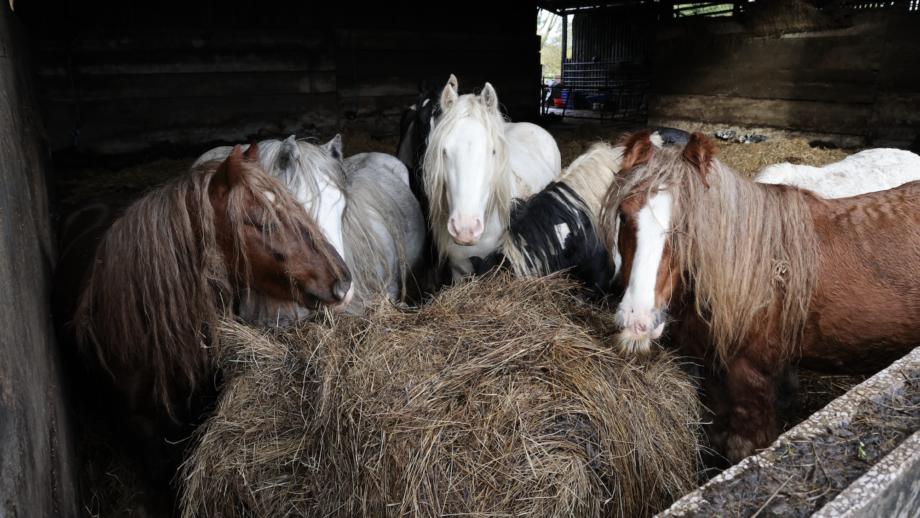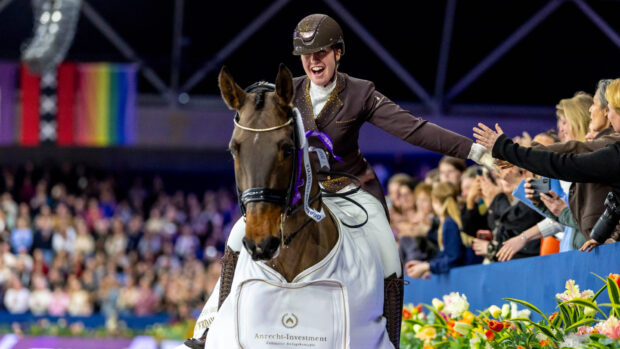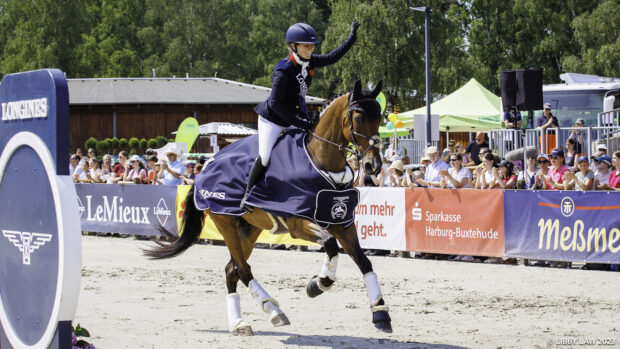A farmer who “wantonly neglected hundreds of animals” in one of the largest cases the RSPCA has ever dealt with has been jailed for a year and banned from keeping all animals for life.
Authorities who went to Croftfield Farm in Dawgates Lane, Skegby, near Sutton-in-Ashfield two years ago found a “foul smell” owing to the “appalling conditions” in which Lee Hayes, now 52, was keeping more than 450 animals.
About 70 horses and donkeys were seized in a multi-agency operation also involving The Donkey Sanctuary, Redwings, World Horse Welfare, Bransby Horses, the British Horse Society, Dogs Trust and Beauties’ Legacy. During the rescue, code-named Operation Teal, 455 animals of 19 different species were rescued, also including more than 50 dogs and puppies, more than 170 guinea pigs, ferrets, rabbits, small rodents, cats, poultry, exotics, birds, reptiles and a llama.
Hayes pleaded guilty to 25 animal welfare offences and was sentenced at Mansfield Magistrates’ Court on 18 September. His girlfriend, 33-year-old Tammy Heath, of Moorland Close, Skegby, was sentenced on the same time, having pleaded guilty to two animal welfare offences relating to failing to meet the needs of two dogs.
An RSPCA spokesperson said its officers went to the farm with Nottinghamshire Police officers, who were executing a warrant, on 1 November, 2023.
“Virtually all the animals had not received veterinary care and several had to be put to sleep to end their suffering,” he said.
“Hayes had claimed that circumstances at the farm had ‘all got a little out of hand’, but the district judge said he had ignored advice to make welfare improvements, including that from staff of the Donkey Sanctuary who had visited the farm in 2016, and the RSPCA.”
The case came to light after the founder of missing dogs’ charity Beauties’ Legacy, Lisa Dean, visited the farm in 2023 to investigate claims about a stolen dog, and Nottinghamshire Police raised concerns about the conditions.

“PC Jack Grace was overcome by a foul smell as he entered a barn ‘housing many dogs who were whining and some eating their own faeces’,” the RSPCA spokesperson said. “He reported Hayes to the RSPCA.”
On 1 November 2023, RSPCA inspector Laura Baker and her team found “many animals living in squalor”.
“Donkeys and horses were suffering from rotting feet without attention from a vet or a farrier,” the RSPCA spokesperson said. “Some were underweight and others had not received any treatment for parasites and proper dental care. Seven of the donkeys rescued had chronic hoof issues and are now in long-term care with The Donkey Sanctuary.
“Over half the 59 equines seized were of poor body condition, one donkey so lame that she was put to sleep to end her suffering. The floors of barns and enclosures were deep in faeces and stinking, mouldy forage. Most of the mares had mixed with stallions and were falling pregnant, adding to the growing numbers of equines.”
Equine vet Suzanne Green said the horses’ “severely overgrown” feet should have been seen by a vet and farrier and many of the donkeys and horses were underweight.
“There was an extensive failure to provide the most basic preventative health care requirements,” she said.
The RSPCA said dogs and cats were also found tethered or locked in the dark; one of the worst neglected animals was an elderly German shepherd who was struggling to walk; the RSPCA said Hayes “admitted the dog had not seen a vet and he ‘expected it to die that winter’”. This dog had to be put down.
“The court heard Hayes had collected all kinds of animals at his farm,” the RSPCA spokesperson said. “There were underweight birds and ducklings whose bodies and feet were stained with faeces; ferrets and rabbits were found living in filthy, maggot-strewn cages and enclosures; mice, pigmy squirrels and hamsters were kept in overcrowded cages inside the farm house and a Congo grey parrot was so stressed it pulled out half his feathers.”
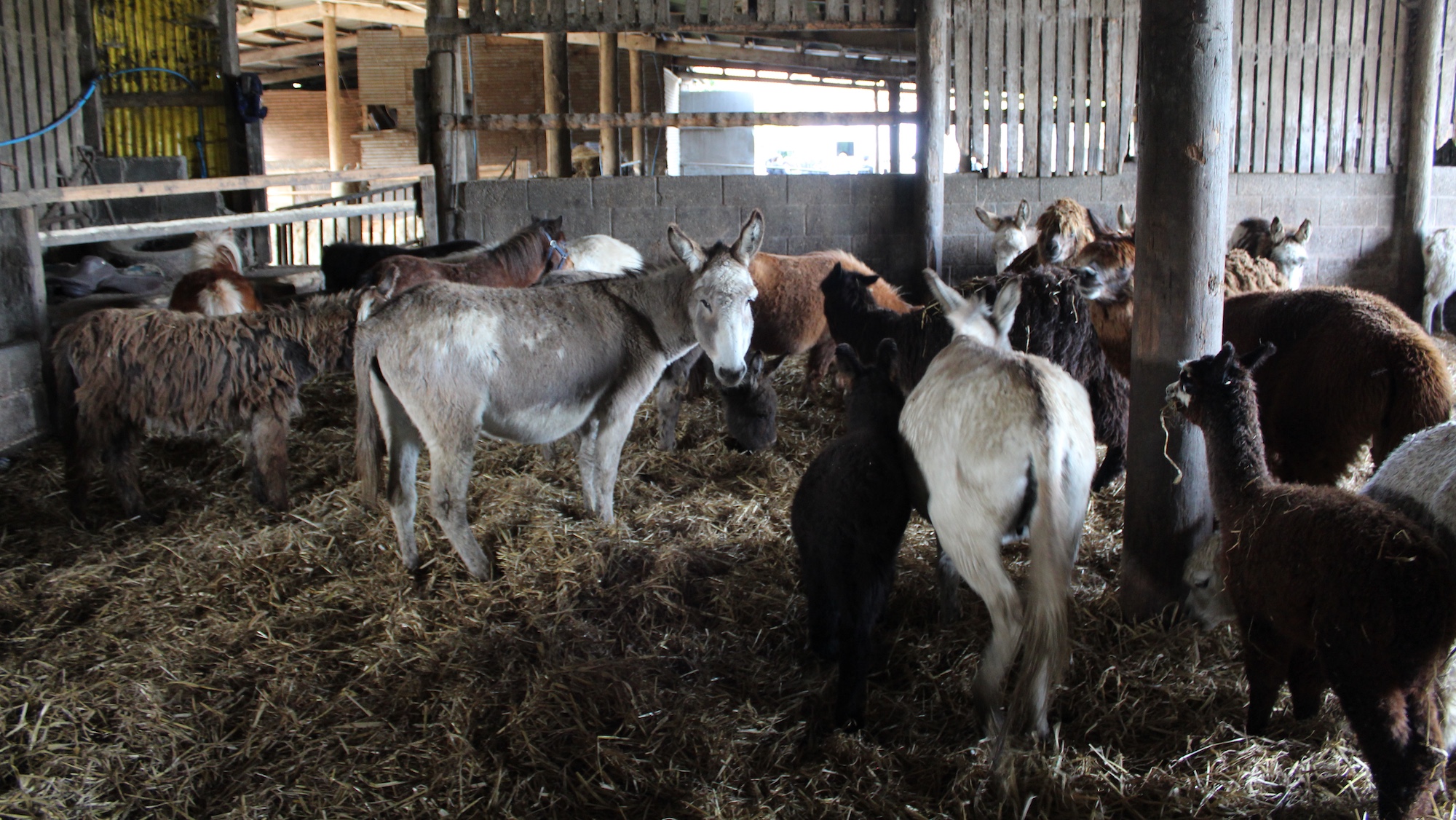
Hayes signed many of the animals over to the RSPCA, but the charity needed a court order to remove the horses and farm animals.
In mitigation, solicitor John Wilford said poor weather had worsened conditions on the farm.
“Over a period of time he became overwhelmed by the situation he found himself in, he has not acted maliciously,” he said. “All the animals he acquired came from people that knew he would take them on. He did not have the ability to say ‘no’.
“He should have accepted help as he did realise a number of animals the RSPCA rescued needed treatment.”
The district judge told Hayes: “When the RSPCA and police came they found no improvements. All the animals were still living in abhorrent conditions and severely neglected, which included unsanitary, overcrowded accommodation, dogs living in faeces and urine, goats with overgrown hooves, equines with thrush and cats with fleas and flu.
“A lot of this could easily have been prevented, but you wantonly neglected hundreds of animals of a wide range of species. You lack insight in the care of animals and you present a high risk of offending again as far as the welfare of animals is concerned.”
Heath’s solicitor said she accepted she kept her two dogs in inappropriate conditions but “she couldn’t use her father’s house as there was an ‘aggressive’ dog there”.
Learning from mistakes
“She has learnt from her mistakes,” the solicitor said.
Heath was given a 13-week prison sentence, suspended for 12 months. She was banned from keeping dogs for five years and will have to complete 200 hours of unpaid work.
The district judge granted the RSPCA’s application for costs of £664,650 against Hayes and said the charity will have to seek recompense at the High Court. She made a collection order for £2,000 costs against Heath, and ordered Hayes to pay a victim surcharge of £187 and Heath a surcharge of £154.
A deprivation order on the remaining animals at the farm, understood to be about 200, was made; Hayes must set out what animals he still has, and this gives him or his associates six weeks to rehome them.
Ms Baker, who led the operation, said: “The conditions we found all these animals living in were absolutely appalling. The smell of manure hit as soon as you walked through the gate and the sheer volume of animals in dire circumstances was quite overwhelming. There was a very lame cow tied up in one of the barns that was the most broken animal I had ever seen. There was also a lamb I will never forget, her leg was swinging and the smell of infection from her was the worst thing ever; she’d been attacked by a dog some days before and just left suffering with multiple fractures.
“There were few signs any kind of animal husbandry had taken place. Many of the dogs for example were suffering from easily treatable conditions and the lack of veterinary care demonstrated the total disregard the defendant took to the animals’ welfare.
“Keeping large numbers of animals like this at one location is never a good idea as the resources required to give them a good life are unlikely to be found. The defendant also allowed the number of animals to grow, as for example mares were mixing with stallions and bitches were paired up with dogs.”
Tip-off
Ms Baker said the charity was grateful for the tip-off about the conditions at the farm.
“This meant alongside Nottinghamshire Police we were able to organise a rescue of over 450 animals with the assistance of our charity partners,” she said. “We split up into teams over two days to deal with different species and all the animals were systematically health checked and then taken to safe accommodation, where many were treated for their ailments and have since made a good recovery.
“Many of these animals have already been rehomed to enjoy better lives, both by the RSPCA and with the help of our charity partners.”
Redwings Horse Sanctuary vet and head of welfare and behaviour Nic de Brauwere added: “This was a very challenging two days working with often nervous and unhandled ponies and donkeys that were trapped in horrible living conditions. It was difficult to see just how poor their quality of life was. But being able to help them by supporting the vet assessments and then getting the equines onto the many horseboxes, knowing they were heading to a much brighter future, was very rewarding. I’m pleased that one of the ponies I got to work with will be finding his forever home with us here at Redwings.”
- To stay up to date with all the breaking news from major shows throughout 2025, subscribe to the Horse & Hound website
You may also be interested in:

Some 90 horses removed from farm in major welfare operation after concerns raised
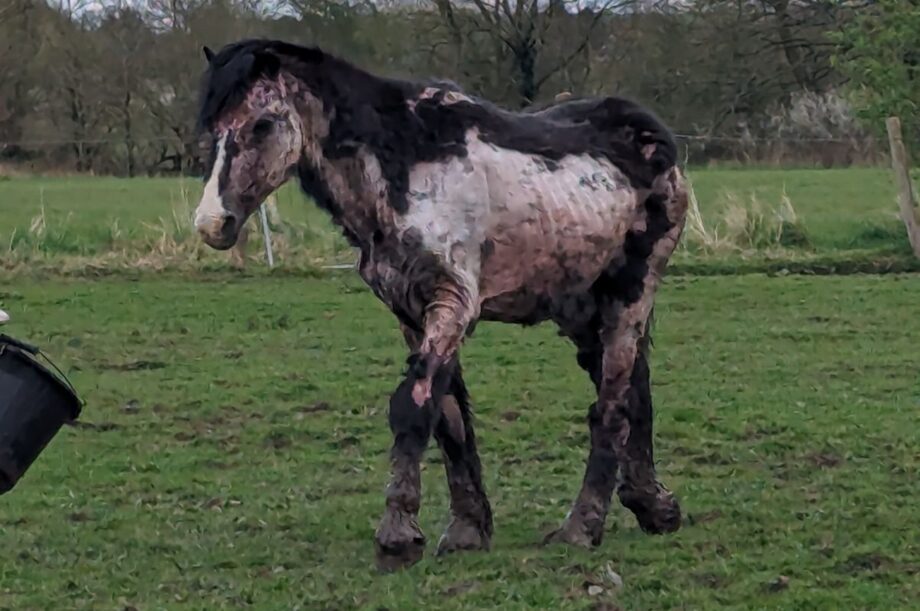
Rescuers ‘horrified’ as neglected, underweight horse found almost bald from untreated skin condition *warning: upsetting pictures*
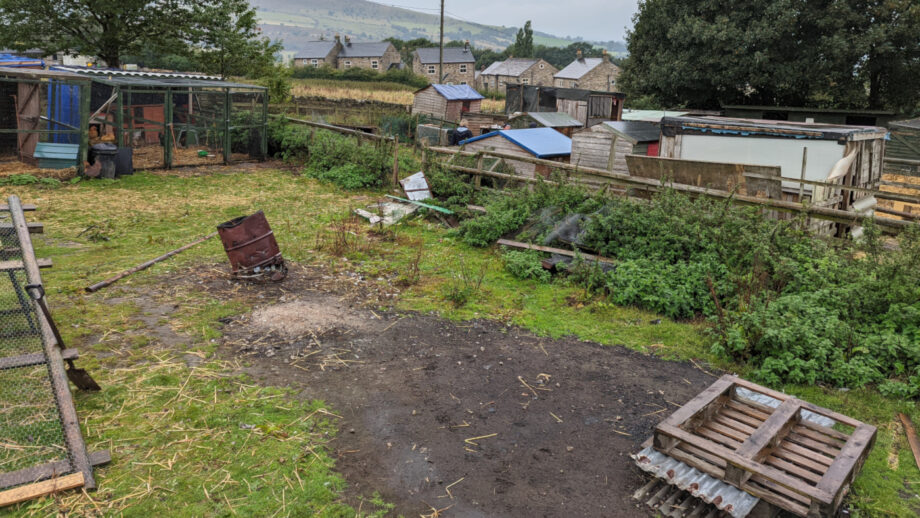
Court upholds lifetime ban for rescue centre owner who allowed horses to suffer

‘He proved that healing is possible’: horse rescued from ‘heartbreaking neglect’ dies surrounded by love

Subscribe to Horse & Hound magazine today – and enjoy unlimited website access all year round

